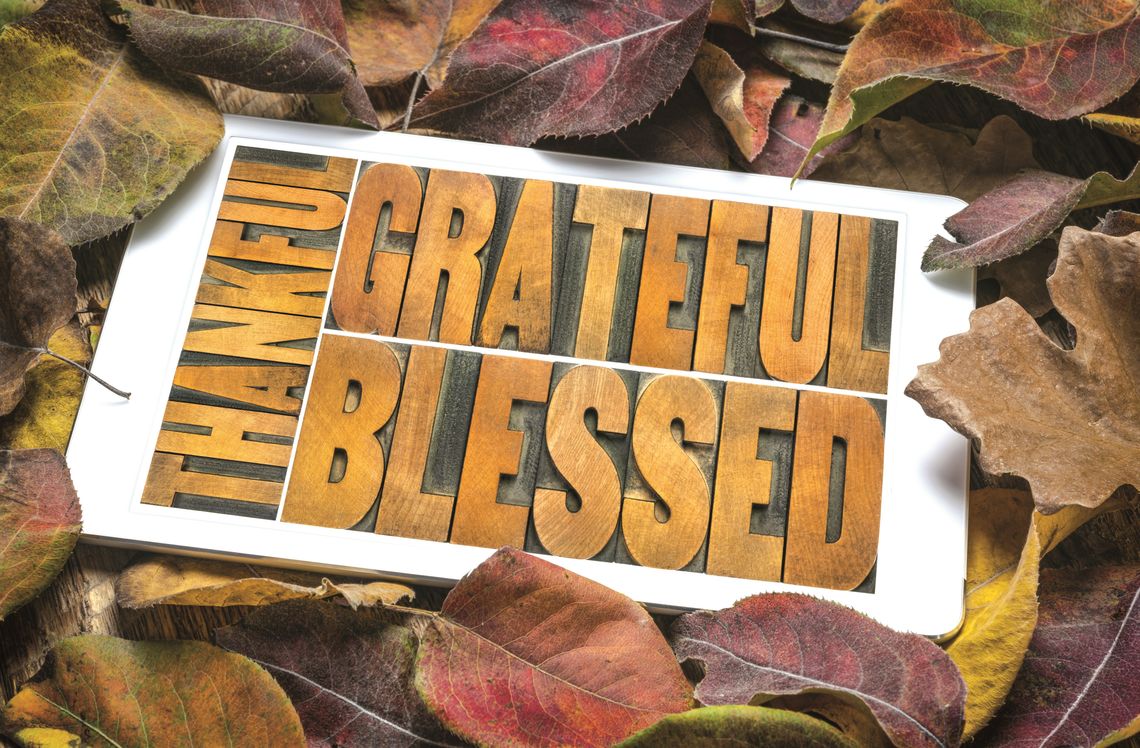Well, here we are, heading quickly to the end of the year. But first, we need to slow down enough this month to enjoy Thanksgiving.
The New England colonists were accustomed to regularly celebrating "thanksgivings," or days of prayer thanking God for blessings such as a military victory or the end of a drought. The event that Americans commonly call the "First Thanksgiving" was celebrated by the Pilgrims after their first harvest in the New World in October, 1621. This feast lasted three days, and was attended by 90 Native Americans from the Wampanoag Tribe and 53 Pilgrims. [Source: Wikipedia]
Thanksgiving has been celebrated nationally on and off since 1789, with a proclamation by President George Washington after a request by Congress. The date varied through the years, until 1942, when Thanksgiving earned a permanent date by an act of Congress. Beginning then, Thanksgiving is always observed on the Fourth Thursday of November.
But shouldn’t every day be a day of thanksgiving? I Chronicles 16:34 is one of the most beautiful verses in all of Scripture. It says, "Give thanks to the Lord, for he is good; his love endures forever." This precious teaching runs throughout the Bible. Sometimes it’s repeated word for word - as in I and 2 Chronicles, Psalms, and Jeremiah. At other times, its meaning is clearly present - and that is the case in every Bible book.
The Bible is filled with commands to give thanks to God. Many passages give reasons why we should thank Him, such as "His love endures forever" (Psalm 136:3), "He is good" (Psalm 118:29), and "His mercy is everlasting" (Psalm 100:5). Thanksgiving and praise always go together. We cannot adequately praise and worship God without also being thankful.
Feeling and expressing appreciation is good for us. Like any wise father, God wants us to learn to be thankful for all the gifts He has given us. We should remember that everything we have is a gift from Him. Without gratitude, we become arrogant and self-centered. We begin to believe that we have achieved everything on our own. But "Thankfulness" keeps our hearts in right relationship to God, the Giver of all good gifts.
Giving thanks also reminds us of how much we do have. As human beings, we tend to focus on what we don’t have. By giving thanks continually, we are reminded of how much we do have. When we focus on blessings rather than wants, we are happier. When we start thanking God for the things we usually take for granted, our perspective changes. We realize that we could not even exist without the merciful blessings of God.
I Thessalonians 5:18 says, "In everything give thanks; for this is God’s will for you in Christ Jesus." We are to be thankful not only for the things we like, but for the circumstances we don’t like. When we purpose to thank God for everything that He allows to come into our lives, we keep bitterness at bay. We cannot be both thankful and bitter at the same time. We do not thank Him for evil, but that He is sustaining us through it. We don’t thank Him for harm He did not cause, but we thank Him when He gives us the strength to endure it. We thank Him for His promise in Romans 8:28 that "all things will work together for the good, to those who love God and are called according to His purpose."
We can have thankful hearts toward God even when we do not feel thankful for the circumstance. We can grieve and still be thankful. We can hurt and still be thankful. We can be angry at sin and still be thankful toward God. Giving thanks to God keeps our hearts in right relationship with Him and saves us from a host of harmful emotions and attitudes that will rob us of the peace God wants us to experience.
When we learn to be thankful "in everything," then every day becomes Thanksgiving Day! Be sure to take your family to Church on Sunday!



Comment
Comments